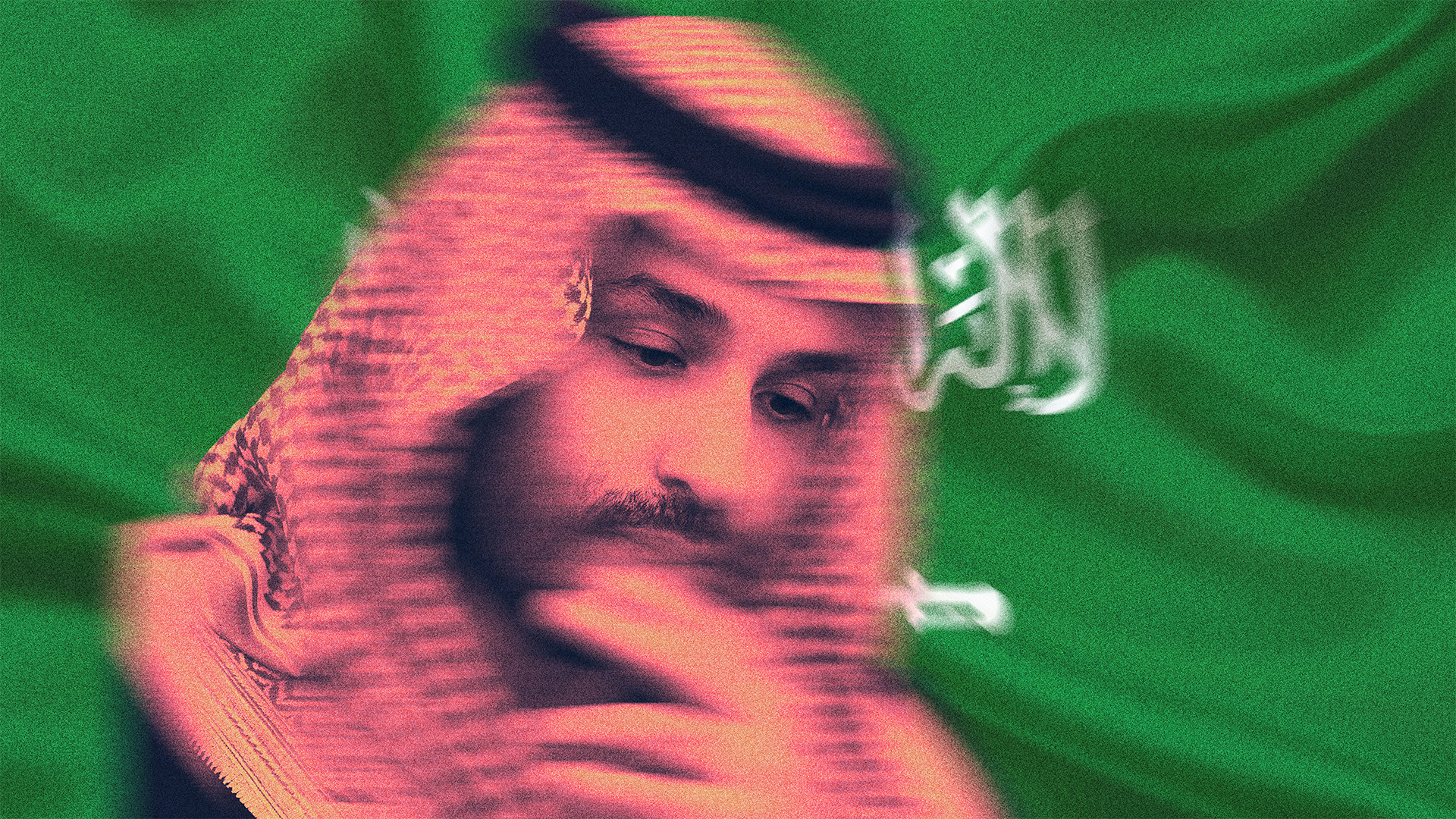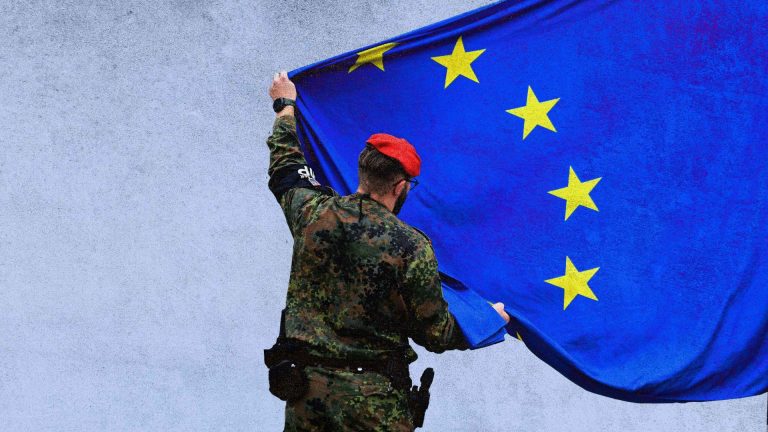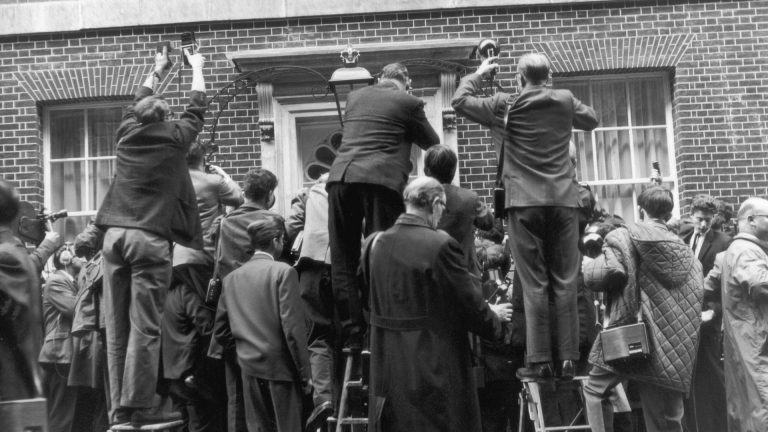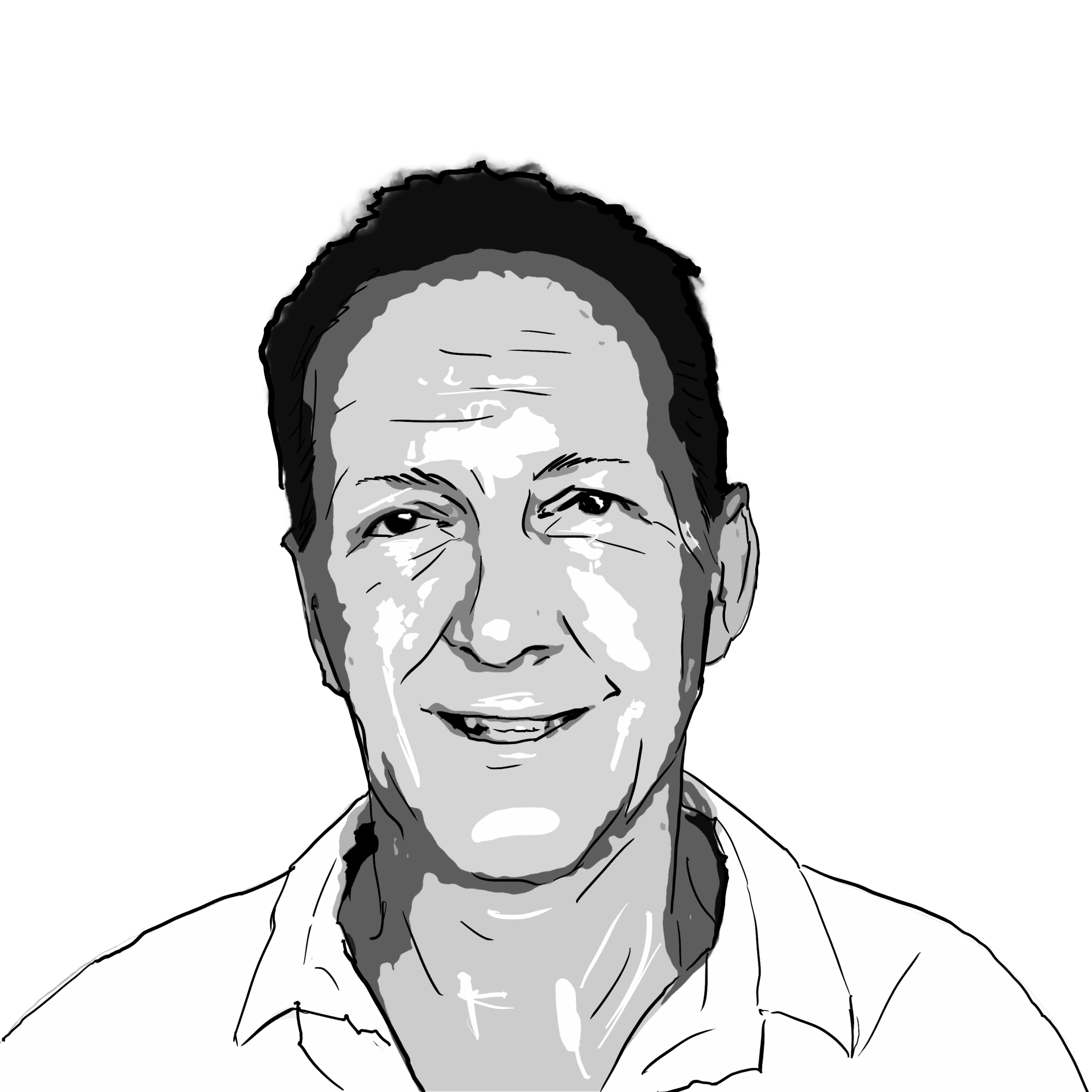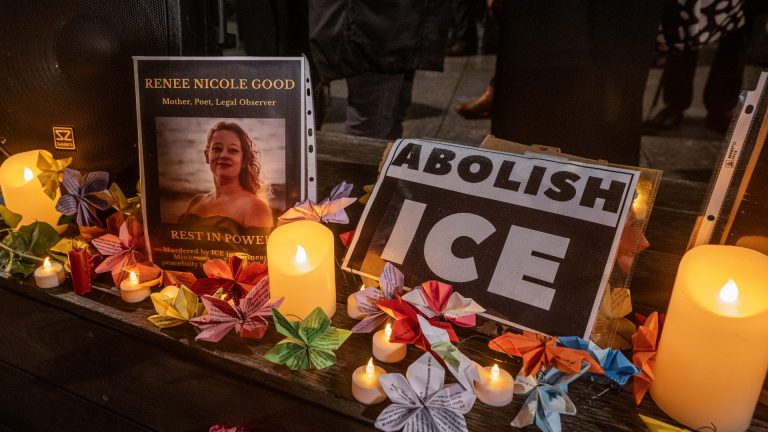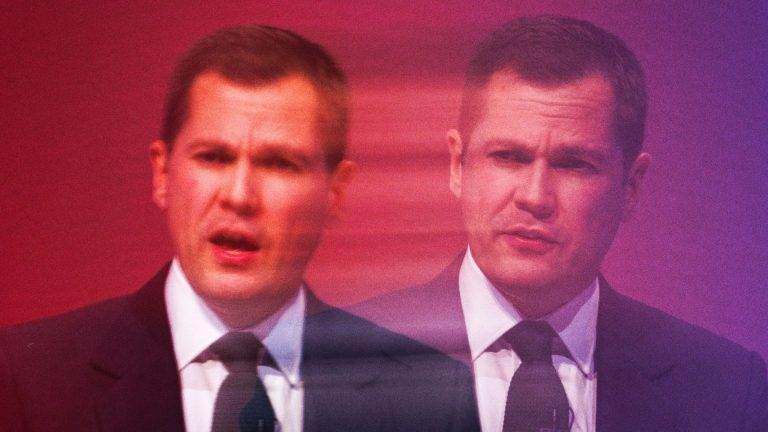To see crown prince Mohammed bin Salman Al-Saud at the White House with Donald Trump on November 18, smiling and shaking hands, is to see a leader restored to the very top of global politics. When he was in office, Joe Biden called the man known as MbS a “pariah” for ordering the brutal murder of the journalist Jamal Khashoggi in 2018. But the view in Washington is now very different. At a press conference in the Oval Office, when a journalist asked MbS about the killing, Trump intervened, saying that “many people didn’t like” Khashoggi. “Whether you like him or didn’t like him, things happen,” said Trump. “Why did you have to embarrass our guest by asking about that?”
Trump’s support and apparent friendship are – for now at least – helpful to MbS’s international rehabilitation. But the real challenge for the crown prince is domestic. Because, back home, the Kingdom of Saudi Arabia is undergoing a transformation of exceptional speed. Driven by a plan known as Vision 2030, the 40-year-old crown prince, who has been in power since 2017, has launched an enormous programme of economic and social liberalisation.
But for all the smiles and bonhomie in the Trump White House, the central question that confronts Saudi Arabia is a domestic one: whether this revolutionary effort can produce a modern, adaptable society capable of participating fully in the new world order, or merely forge a new form of the old authoritarianism. Can an autocratic monarchy like Saudi Arabia ever undergo real change?
The first and most dramatic element of MbS’s agenda was to dismantle the traditional structure of shared royal rule and to consolidate power in a single, autocratic entity. The traditional Saudi governance model relied on extensive consultation, or Shura, which included the broader royal family, merchant elites, and religious scholars. That tradition of forging a consensus among the wider Al Saud family was ended, because MbS does not trust any of his half-brothers or cousins – within the Al Saud clan, he only trusts his full brothers. In a sign of how he intends to make himself the centre of all power, MbS also intends to change the system of succession in the kingdom to one based on primogeniture, meaning that his own son will inherit the throne after him, and power will be confined to Salman’s direct descendents.
A consequence of this is that MbS has made countless enemies within the royal family and powerful business elites. The purges and humiliations have created huge resentments meaning that he lives in constant fear of revenge.
The second element of MbS’s consolidation of power has been his assault on traditional Wahhabi clerical power, one of the pillars of the Al Saud family’s legitimacy ever since the first Saudi State was founded in 1744. MbS has openly declared his country to be “post-Wahhabi”. In his view, the old theocratic ways will hold back the socio-economic revolution he has in mind.
The most visible manifestation of this war against the hardline clerics was the curtailing and then dismantling of the religious police, also known as the Committee for the Promotion of Virtue and the Prevention of Vice. Their powers were transferred to the regular police, causing them to all but vanish from Riyadh. This move was necessary, to make way for the new social reforms, but it was also part of an effort to erase the religious foundations of the state’s identity itself.
The new declaration of Founding Day on February 22 is also indicative of this shift. This new celebration marks the date that Mohammed bin Saud became ruler in 1727, and is meant to divert attention from the more ideologically charged date of 1744, when the Al Saud family made its alliance with Muhammed ibn Abd al-Wahhab. MbS is keen to replace traditional Islamic fervour with a secularised nationalism.
Socially, these reforms have led to the near doubling of women’s participation in the workforce since 2018, and the relaxation of dress codes. However, these freedoms are precisely what allow MbS to maintain his grip; the sudden and occasional reappearance of the religious police, such as after executions, is seen as a means of cultivating a “bogeyman”, against which MbS can contrast himself. It reminds Saudi women and the young that he is their protector – that their new freedoms are conditional upon his continued rule.
Alongside this, MbS is pursuing what can best be described as an economy of spectacle. The government is investing billions in the General Entertainment Authority (GEA), an entity that’s run by his key lieutenant Turki Al Sheikh. Saudi Arabia now permits concerts with mixed audiences, as well as the opening of movie theatres. The GEA has also spent $60m on creating an e-sports World Cup, and has spent aggressively on global sports, including $5bn on LIV Golf and the acquisition of Newcastle United Football Club. “If sport washing is going to increase my GDP by way of 1%,” MbS has remarked, “then I will continue doing sport washing.”
This political and cultural overhaul is inextricably linked to a broader geopolitical reorientation, which relates to the Kingdom’s foundation and its relationship with the west. The Third Saudi State, founded by Ibn Saud in 1902, was dependent on foreign support; the British were the regional superpower at the time, offering him a monthly grant of £10,000 in gold and arms, including more than 10,000 rifles. Ibn Saud also harnessed the fundamentalist religious movement known as the Ikhwan, militant fanatics who served as his crack troops.
The British played a decisive role in the betrayal and liquidation of the Ikhwan at the Battle of Sabilla in March 1929 after they turned against Ibn Saud, with the British providing machine guns to put down the rebellion. This western assistance established a pattern of external patronage, culminating in the post-war alliance between Saudi and the west, particularly Britain and the US. That relationship was based on the unholy trinity of oil, arms, and corruption.
This framework was a western solution, intended to offset the enormous transfer of western funds into Saudi to buy oil, and at its heart were a series of colossal military contracts. These deals were expensive, required constant upgrades, and could be kept behind a curtain of “national security”, which provided a degree of obscurity that allowed immense corruption. Western governments got their oil money back in arms payments, while Arab dictators enriched themselves – those military contracts typically included commission payments of up to 50%.
Suggested Reading
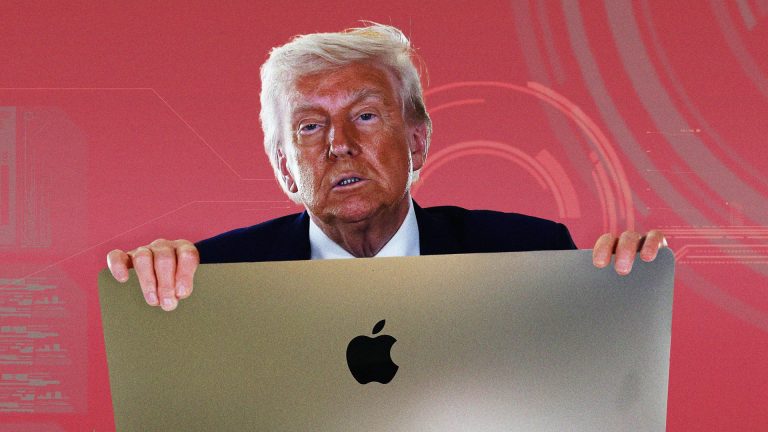

Donald Trump’s digital landgrab
This opaque system persists, as evidenced by a historic bribery case involving a UK government deal to provide services to the Saudi Arabian National Guard. A recent Airbus deal masterminded by MbS has also come under scrutiny. According to the anonymous Saudi Twitter account Mujtahidd, which has frequently broken important stories about the royal family, $4bn went straight into the pocket of MbS’s brother, Turki bin Salman, as the “mastermind” behind the transaction.
That cosy relationship with the west came under strain after the horrific murder of Jamal Khashoggi, which was met with such outrage by, among others, president Biden. However, the Ukraine war and the subsequent spike in oil prices forced a reconciliation, which further rehabilitated the reputation of the crown prince. Under Trump, relations have become even more cordial. In May, the US and Saudi Arabia signed a $142bn arms deal, touted by the White House as the “largest defence sales agreement in history”.
MbS has also moved towards a covert normalisation of relations with Israel, and away from sole reliance on Washington by strengthening ties with both China and Russia. Although there has long been speculation about whether Saudi Arabia might officially normalise relations with the Jewish state, in fact Saudi-Israeli relations are already more than normalised, driven by MbS’s belief that his own future is intimately intertwined with Israel’s.
This deepening relationship is reflected in Saudi Arabia’s financial activities. Affinity Partners, run by Jared Kushner, Trump’s son-in-law, has invested heavily in Israeli start-ups. Affinity has received £2bn from the Public Investment Fund, Saudi Arabia’s sovereign wealth fund. Moreover, PIF’s subsidiary, Sanabil Investments, has direct investments in dozens of Israeli companies.
Throughout the Gaza genocide, Saudi Arabia supplied oil to fuel Israeli jets and tanks, and also established a land bridge across the Arabian peninsula to help Israel evade the Houthi shipping blockade. MbS has said in public statements that normalisation of relations with Israel depends on a two-state solution, but this is a distraction from the existing deep collaboration. MbS has gone all in with Israel, even as the overwhelming majority of Saudi popular opinion remains strongly pro-Palestinian, a sentiment that has been brutally suppressed by the Saudi security apparatus.
But perhaps the most immediate danger to MbS is that, despite the ties to the US, the sportswashing and the oil money, his grand economic ambitions are dangerously unstable. Vision 2030, which relies entirely on public investment, is running into severe fiscal headwinds. The economy remains oil-dependent, requiring Brent crude to be at $96.20 per barrel to balance the budget. But oil is currently around the $65 mark, and the Saudi economy is running a deficit.
In addition, the Public Investment Fund’s strategy, under the leadership of governor Yasser Al-Rumayyan, has included colossal and often baffling investments that have resulted in billions of dollars in losses. Beyond the disastrous $13bn investment in Lucid Motors and the $5 billion in losses for LIV Golf, PIF also committed $45bn to SoftBank’s Vision Fund. That money went into bewildering investments in an array of failed ventures, including a dog-walking app called Wag. The fund’s luxury brand investments have also yielded little success: its stake in Aston Martin produced no profits, and its shares in the McLaren Group were quickly sold off. In the gaming sector, PIF put $1.5bn into the Swedish company, Embracer Group, only for its stock price to halve.
This unchecked spending and mismanagement goes on without any government accountability. And when the economist Issam al-Zamil warned of the risks of this persistent mismanagement, he was jailed. Perhaps most damagingly of all, the flashy state-backed giga-projects are sucking up capital, attention and construction materials while elbowing private investors out of the way, hindering true private sector growth and forcing Riyadh to rely increasingly on sovereign debt.
And behind the facade of rapid, western-facing modernity is an unyielding commitment to autocracy and political repression. The entire system has been converted into a one man show, with MbS the undisputed despot. All aspects of governance, security and the economy are controlled by his inner circle, who act with complete impunity.
His three most trusted lieutenants are Saud Al Qahtani, in charge of social control, Turki Al Sheikh, the key architect of the cultural transformation, and Bader Al Asaker, who manages MbS’s personal affairs. These three can travel anywhere, make any deal, and have the full authority and backing of the crown prince. They act with complete impunity.
That impunity has required the absolute subjugation of the judiciary. Sharia law has been sidelined and in its place is a secular legal framework imposed by MbS’s administration, its sentencing often just as harsh as what went before. The judiciary is so tightly controlled that judges are now essentially extensions of state security, with special “Support Committees” to decide on sentences.
MbS brought in Egyptian legal advisors to reshape the prosecution process. Some of them have expressed shock at the severity of sentences imposed on prisoners of conscience, even advising that certain rulings violate international legal standards. Nevertheless, the state continues to use the police state to crush all dissent. In 2022, Saudi Arabia held a notorious mass execution of 81 men, many of them activists or dissidents. Even the economist who dared to speak his mind was given 15 years.
The crown prince’s vanity projects, such as NEOM, a 10,000 square mile planned city, are impressive for their ambition, but are being forced into existence on a wave of violence. Abdul-Rahim al-Huwaiti of the al-Huwaiti tribe was shot dead by security forces in his home for his objections to the plan. He had protested against the forced eviction of 20,000 people from their historical homelands.
There is no doubt that something new is emerging from this chaotic process, but it is not a modern society in the western sense. Instead, it is a military-consumerist dictatorship, a meticulously managed, secretive and corrupt police state that has successfully transitioned from a society bound by religious conformity to one defined by mass gratification and economic ambition. The autocratic monarchy has changed, but the limits of that change are defined and curtailed by the necessity of absolute personal control.
MbS has modernised the kingdom’s mechanisms of governance, trading the sword of the cleric for the sword of the executioner and the lure of the entertainment complex. Saudi Arabia is becoming a highly leveraged, financially exposed state where political risk is higher than ever, and where the only true constant is the brutal repression required to sustain the illusion of modernity.
The question for the future is not whether this system can survive the next oil price slump, but how long it can continue to suppress the underlying feelings of popular dissent. The massive public investments are intended to establish MbS’s authority and silence internal opposition. But the decision to suppress pro-Palestine sentiment and the failure to create a sustainable, diversified economy, means the kingdom is building a future where the greatest threat is not foreign aggression, but the internal instability inherent in absolute power.
Hugh Miles is an award-winning author and investigative journalist specialising in the Middle East and North Africa. He is the founder of the Arab Digest, has worked with a wide variety of media including the BBC, CNN, Al Jazeera, Guardian, Telegraph, Independent, Foreign Policy, London Review of Books and the New York Times. He has written, produced and presented radio and TV programmes for the BBC and Al Jazeera.

